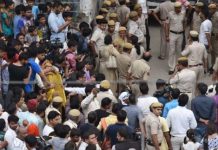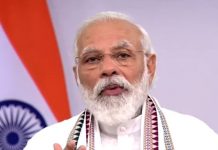
It is said that the silence of the good people is more dangerous than the brutality of the bad people. That is what is happening in case of the continuing nightmare in Gaza. It is indeed a crisis of humanity and the recent reports of military raids in Al-Shifa hospital in Gaza are appalling. More appalling is the silence of many nations that raise voices against trivial issues on the drop of hat but are observing a deafening silence on this grave crisis. Martin Griffiths, the UN’s chief of humanitarian affairs, summed up the situation when on November 15, he posted on X that, “The protection of new-borns, patients, medical staff and all civilians must override all other concerns. Hospitals are not battlegrounds.” In response, Israel says it is carrying out a targeted operation at the hospital against Hamas for allegedly running a command centre under the hospital. However, positioning tanks in the hospital compound has made the situation catastrophic.
It is amply clear that diplomatic windows are being shown the door in this conflict. It’s time for India to exert pressure for a ceasefire. India had abstained from a Resolution for a ceasefire in the United Nations Assembly only a few days back, but in such a situation when every moment counts to save lives, India must play a decisive role to mitigate the humanitarian crisis. Indeed, the Gaza catastrophe is the result of a brutal attack by Hamas killing over 1000 and taking 240 hostages, but Israel’s response to decimate Hamas and killing over 14,000 of people in retaliation is even more savage. At least 70 per cent of the population has been forcibly displaced. Israel Prime Minister Benjamin Netanyahu has rejected calls for putting an end to violence and carrying out a more proportionate counter-terror campaign, unless the hostages are released.
The nightmare in Gaza is a crisis of humanity and worst victims are children, women and innocent people. Every country faces a fundamental responsibility to stop the suffering. India has taken a stand on the need for de-escalation and an early restoration of peace but it has to put its weight behind the overwhelming world sentiment for a meaningful course-correction from Israel. Even Joe Biden, the US President, has now said that “hospitals must be protected”. India’s official response to the Israel-Hamas war reflects a strategic tilt toward Israel and yet it should not be misinterpreted as a broader alignment with the United States or any other “camp” in this bitter contest. The maxim that Indian External Affairs Minister S. Jaishankar has repeated in geopolitical contexts holds equally true for India’s stance in the Middle East: “Do not think it’s necessary for India to join any axis. India is entitled to make its own choices which will be a balance of its values and interests.” The time has come for India to break its silence and raise its voice to articulate options for an immediate ceasefire.













